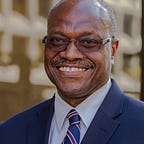Addressing Climate Change is a Win+Win for African Americans
Texas has been hit by many of the most severe weather disasters in the country, and, as the atmospheric scientist Katherine Haydoe has stated, “climate change is loading the dice” against the state. Texas is also the state with the most African Americans, and African Americans are likely to be among the Texans more vulnerable to harm from weather disasters (see, for example, the impact of Hurricane Katrina on black people in New Orleans). Texas illustrates that climate change is very much a black issue.
While addressing climate change is an important issue for African Americans (and for everyone else on the planet), it is also an important issue for preventing and reducing black-white racial inequality. African Americans need protection from the ravages of climate change and African Americans need significant numbers of jobs to address their high unemployment rate. When America fully commits to addressing climate change, it will be able to meet both of these needs.
It is important to recognize that climate change is about more than global warming. It is about “global weirding.” The climate is a complicated system, and humans are disrupting the system by continuing to pump massive amounts of greenhouse gases into the atmosphere. This disruption is causing our weather to be weird. Places that are normally warm can experience extreme heat or unusual cold. Places that are usually dry can experience prolonged droughts or flooding. Whatever weather is weird for a location now has a greater possibility of occurring because of climate change. This is why some people prefer to use the phrase “global weirding” to discuss climate change.
In the United States, many of the negative effects of this global weirding are predicted to hit the Southern states hardest. The Southern states are where the majority of African Americans live. While we can’t say that Hurricane Katrina, Hurricane Harvey, or the recent cold snap that shut down power in Texas is the result of climate change, we do know that global weirding means that these types of extreme weather events will become more and more common. The effects of this global weirding will be most devastating to low-wealth groups like African Americans who have few economic resources to endure and recover from the damage.
To limit the negative effects of climate change, the United States needs to reduce its greenhouse gas emissions. We need to move away from fossil fuels and become more energy efficient. Doing these things will also create jobs — millions of them. For example, the Rewiring America plan would create 5 million jobs in the long-term (and even more short-term jobs) by moving our economy onto clean electricity. This means, among other things, electrifying all of our heating and cooling systems and electrifying all of our cars. An aggressive move to reduce greenhouse gases like that of the Rewiring America plan would mean less harm to African Americans from global weirding, and more jobs — green jobs — for African Americans.
Since climate change is already happening, there is no way that we can completely avoid it. But we can do better to prepare for it, just like Texas could have done better to protect its energy systems from cold weather. We need to repair our crumbling infrastructure and to “weatherize” it for global weirding. We can’t assume, as Texas did, that warm regions won’t have to deal with significant cold weather — or even hotter weather than normal. Building the infrastructure we need could create 3 million jobs. These investments will both protect African Americans and create jobs for African Americans.
President Biden has indicated that he takes the climate crisis very seriously. His commitment to addressing the issue is a promising development for African Americans. It is a win for African American health and safety and a win for African American jobs.
In a future blog, I hope to discuss where the Biden administration needs to be pushed to do better than average on black job creation from green infrastructure investments.
